IN Magazine talked with the director to discuss the unique camp, working with several teenage participants like Kingston and Mia, and the confidence of today’s queer kids…
Summer Qamp premieres this month at the Toronto International Film Festival, and with it comes a particular group of teenagers vying for the badge of most confident. Outliers in their hometowns for being queer, trans, and everything in between, these kids find themselves among campers with similar backgrounds and experiences. Initially shy but ultimately outgoing, many of those that attend Camp fYerfly in Alberta come away happier and more content with themselves than when they went in.
I was privileged to screen the film before the festival and discuss what director Jen Markowitz saw in these kids that made them want to make a documentary about the experience. Archery, horseback riding, and finding one’s most authentic self are just some of this remarkable camp’s activities. After its run at TIFF, the documentary will be distributed on Super Channel in English and TVA in French.
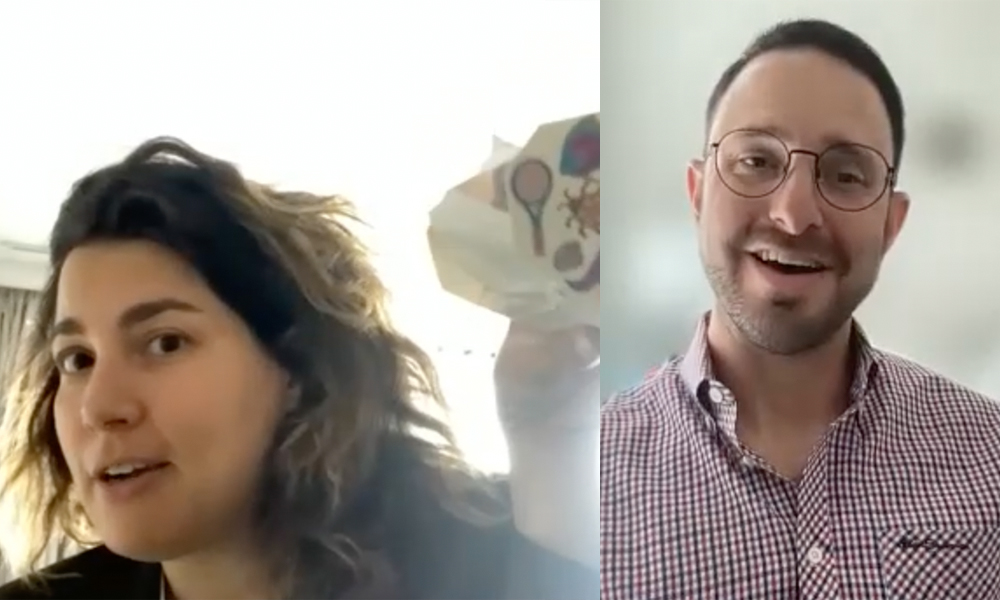
Thank you, Jen, for meeting with me today. If I’ve learned anything from watching Summer Qamp, it’s to ask ahead of time what your pronouns are. So, what are your pronouns and what do you prefer to be called?
My pronouns are They/Them. Jen is perfect.
Great, thank you! So Camp fYrefly, it seems to be a safe haven for queer and trans youth to come together and bond, share typical camp activities and basically just connect with others that are very similar to themselves. How did you find out about this camp and why did you decide to tell this story?
Hello Friend Media, who are the Executive Producers and Cineflix, who are also the Executive Producers as well as Bright West Entertainment, they connected with [others] who are connected with the camp. They sort of made that initial introduction. I was brought on board following that, but I think to my knowledge, they looked around North America at some different camp options, and this one just happened to be the one that we landed on. It’s incredibly interesting to me because it’s in conservative Alberta. But that’s how things sort of started.
I was struck by the impressive way that you utilize a censored sound and visual effect when a trans camper is first signing up for activities and letting the camp know that they were there. How did you decide to use that effect and blur it out when it came to dead naming? Did a lot of parents sign their kids up using their dead name and not the child’s preferred name?
It was a mix. Some of these kids go by different names at home. In this particular case, Kingston talks about it in the film that he hasn’t told his parents some things. When it came to bleeping that, it was just a no-brainer for me for a few reasons. Of course, I’m not going to dead name this kid who has been such an incredible collaborator. I did double-check with him to see that that was his preference and he said, “Absolutely.” Then when it comes to the bleep: I’m kind of a brat. Why not give people a little something to think about? Protect these kids loudly. So that was also on my mind a bit. When I did it, I made that choice.
It’s definitely noticeable. I appreciated the choice, but I think that cinematically it’s very nice that you did that visually enough for the audience to realize that was exactly what you were doing.
I think my mandate going into it that I shared with the kids in the camp was that they were going to be taken care of and protected. Then I understood them and the creatives that were on set with me, we were all part of the community. I think that was also a way for me to show an audience that the film team was taking care of them. Which was also important to me because it’s a documentary. It can be such a wild game of gotcha sometimes. I I just didn’t want to play any part of that and I didn’t want anybody to think that that was part of my game plan.
In addition to the crew incorporating a safe space for these campers, the counselors are a safe space. The Rainbow Elders are a safe space. Were you struck by a lot of these outside parties to this camp that really became mentors to these campers?
Not really, because like I exist out in the world as part of these communities. I knew that they were going to take care of the kids. What struck me actually was that a lot of these kids had never met a queer person. That is really what struck me. So whereas I wasn’t surprised that they were bonding with their counselors, as well as the Rainbow Elders. I was just surprised at how little they had been exposed to.
What’s surprising to me while watching this documentary is that I was 30-years-old when I came out. Some of these kids are 14 or 15-years-old. I could have never had the confidence to be able to do that at that age. I can’t even imagine how they’re able to do that. Some of them come from rural backgrounds and like you mentioned, have never met another queer person before. What kind of confidence do these kids have? Where does this come from?
It is incredible to watch the difference between these kids showing up on day one and leaving at the end of camp. Some of them did not speak a word for the first day or two, and then by the end of camp…Mia for instance. Mia was almost completely silent during the first conversation I had with her. You saw the film and she’s getting bras thrown at her and stuff, like what an impact it can make when you put these kids around other kids like them was incredible. Also to bounce off of what you were saying about imagining having confidence at that age: I learned way more about myself than I thought I was going to. My awareness of my own identity was completely rocked by these kids. By watching them navigate their own journey, and also expressing themselves in the most comfortable way in the most comfortable atmosphere. It was incredible watching. I do not worry about the future of queer people when I spend time with these kids.
What do you think the future looks like for some of these campers after they go back to their hometowns?
I think they’re going to be okay, I know they’re going to be okay. They are in constant contact with each other. They have their own community even if it’s just on Discord, which is how a lot of them communicate. Having the support of this camp and having the support of their parents. These kids are going to be fine. I cannot emphasize enough how much it will change a queer kid’s life just to know that they have a safe place at home. I do not worry about them. They are mobilized, they’re politicized. They know exactly what they’re doing.
You’d mentioned to me prior to starting this interview that you attended camp this summer for a little bit. Were there any returning champions from the film? Has camp changed at all?
There were a lot of returners! It was really cool to see them a year later. And camp is the same. It’s a bunch of kids showing up to have some joyful mayhem in the woods. They gather kids to meet each other to build a community that they can then have around them for the rest of the year. These kids know that they are safe and taken care of at camp.
Did you or any of your crew members get a chance to partake in any of the activities: archery, horseback riding, all of it?
Archery was the only sport I was good at as a kid, so I had to like to go and double-check that I was good at it. I definitely did archery. Every activity that we went to I was taking part in. I think that sort of strengthened these kids’ idea of me because they could see that I just wanted to be there and have fun at the same time.
Is there anything that you really hope the audience takes away once the credits start rolling?
I’m hoping that kids see this, feel affirmed, and feel like they’re not alone. I also hope that people who do not know anything about queer people see this and understand that we are just normal people.These are regular kids doing regular kid things like archery and making bracelets, giggling and getting in trouble with your counselor. It doesn’t have to be complicated like in the anti-queer and anti-trans news cycle. These are just kids and they can just be kids if we let them.
Jen, thank you so much, and good luck with the festival!
Thank you so much, Matthew.
RELATED:

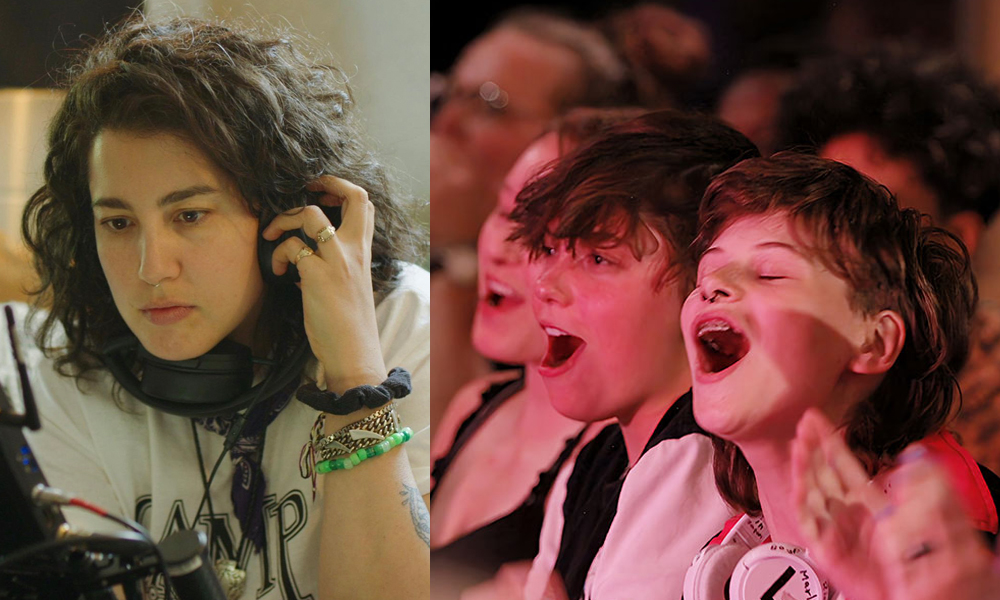
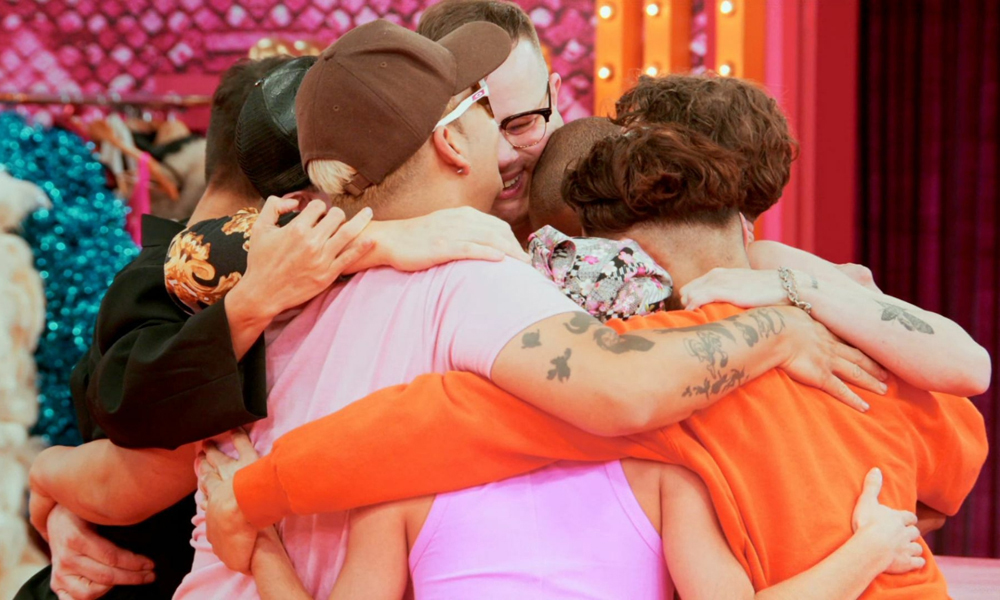
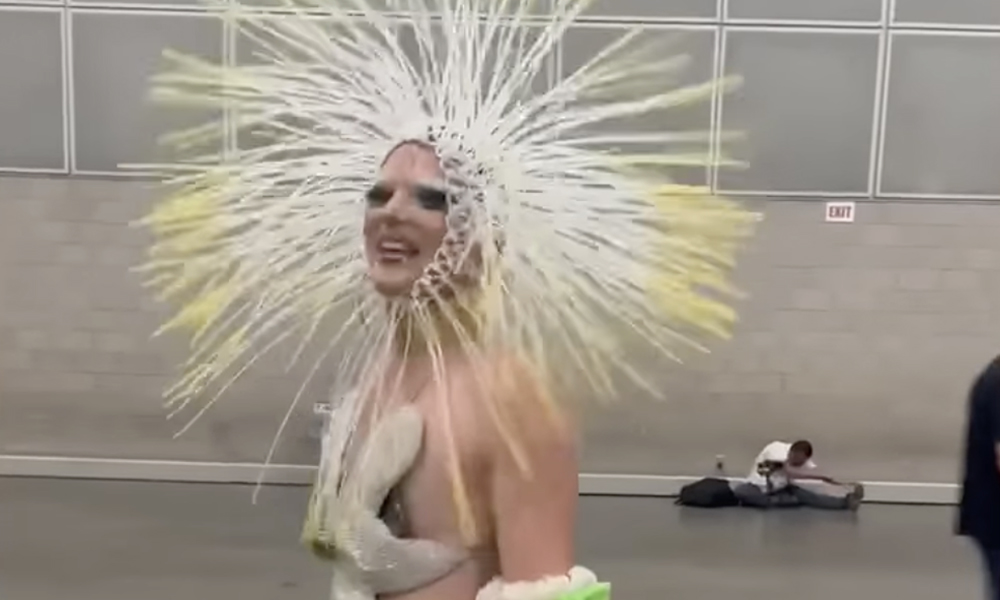
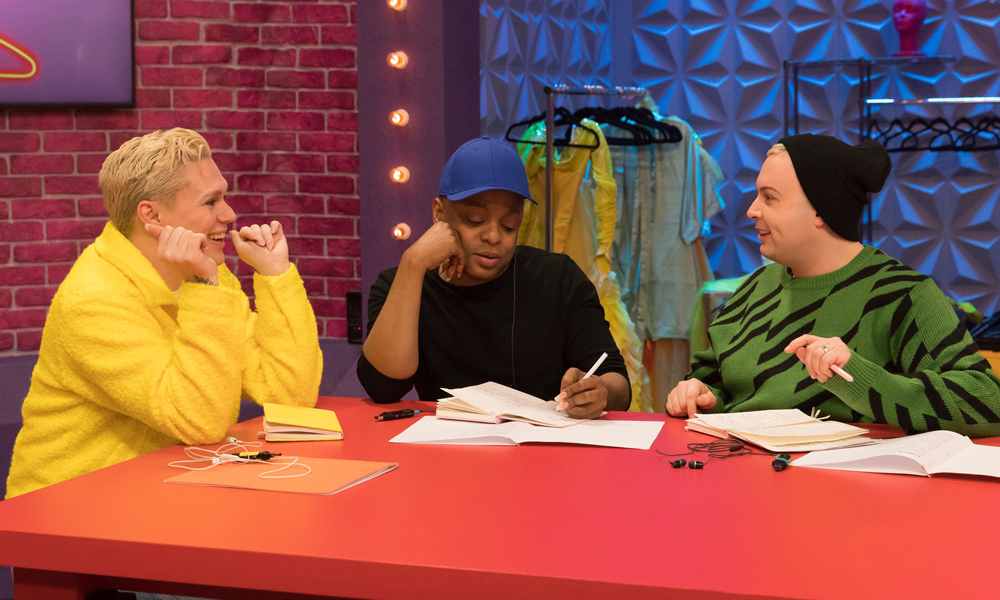

POST A COMMENT